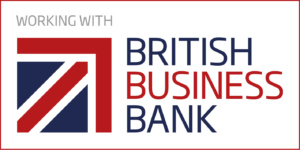The fallout of the stress tests has generally been good news for the Banks. As I discussed in my earlier post, Standard Chartered and Royal Bank of Scotland, however, struggled and only got over the line by promising to keep back more capital. RBS announced that they had shed some of their riskier assets, including Irish property loans to the tune of £1.62 billion that seemingly had the potential to bring rich reward; the spectre of the burst of the Irish property bubble clearly enough to put the bank off. Therefore, it isn’t exactly a surprise that RBS recently announced plans to lend money to mid-sized businesses in conjunction with three global asset managers, namely AIG, M&G and Hermes Investment Management. The partnership will aim to provide finance to between 75 and 80 mid-sized businesses with loans ranging from £25 million to £100 million.
The partnership will allow RBS to benefit from extra due diligence carried out by the asset managers, as well as allowing the bank to further diversify risk. The funds benefit from exposure to an established market that was previously restricted to traditional finance providers. However, the link comes as a result of asset managers increasingly acting as “shadow” banks with companies approaching them for finance. The new partnership will see RBS continue to carry out the brunt of client negotiation directly with the borrower, whilst the asset managers carry out their own due diligence and credit analysis.
The primary (only) benefit to the borrower would be the consolidation of parties to negotiate with; however I would reason that dealing with scrupulous, profit driven asset managers alongside the sluggish, outdated bureaucracy of the banks will hardly speed the process up for borrowers. The relationship is aimed at a niche group of businesses that are already backed by private equity companies, so the move to “Crowdlending” is certainly a tentative, experimental one. It does nothing to combat the issue that the banks aren’t lending to SMEs, the lifeblood of the British economy. But it does show that the banks are willing to share their clients with other finance providers to ensure that a solution is available.
This is all very good news for Peer to Peer Crowdlenders who aim to fill the SME finance gap: expect to see more partnerships with banks emerge that allow banks to continue to lend to small businesses to the extent that their capital resources allow, with specialist crowdlending platforms plugging the gap. Indeed, only yesterday, AltFi reported the news that ThinCats had sold a 73.4% stake in the company to ESF Capital, a European specialist investment firm, in the process appointing ESF Capital CEO John Mould as ThinCats CEO. The view here is that the linking with an investment firm will bring significant new money to lend SMEs, and Mould’s appointment will certainly facilitate that. After all, Mould is the former COO and CFO of the aforementioned Hermes Investment Management- RBS could be the first of the “Big Four” banks to start lending across a Crowdlending platform to UK SMEs; and in all likelihood it will be followed by the others.

